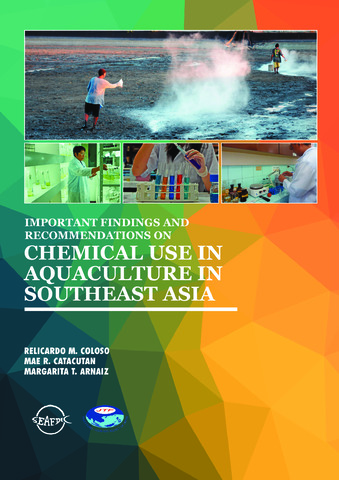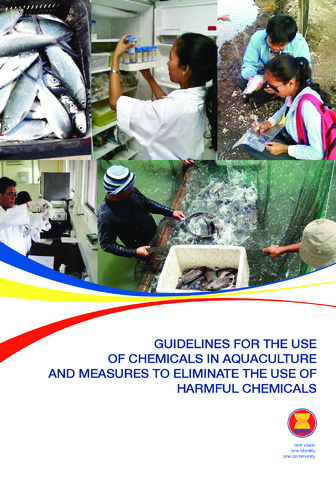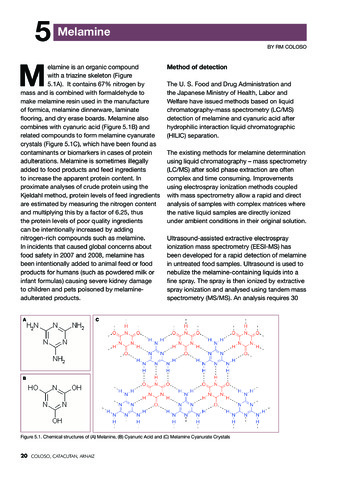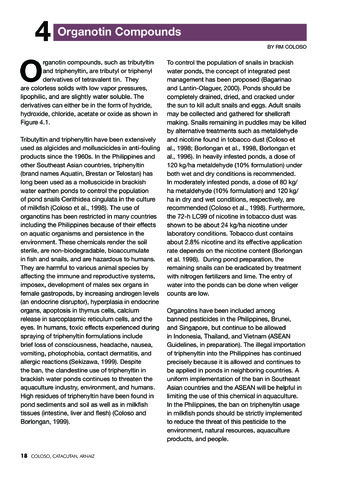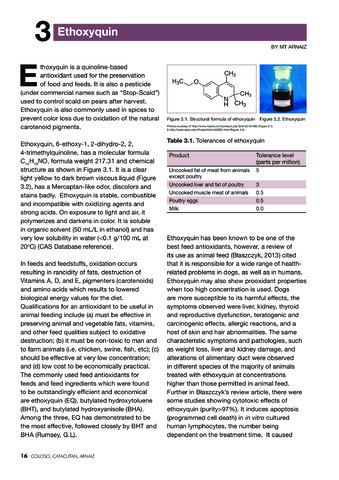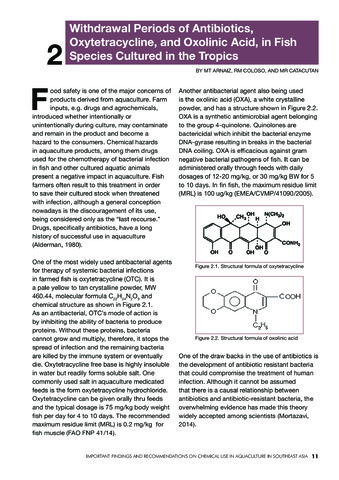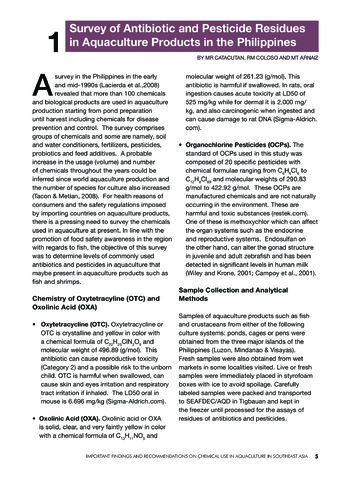Important Findings and Recommendations on Chemical Use in Aquaculture in Southeast Asia
Browse by
Recent Submissions
-
Important findings and recommendations on chemical use in aquaculture in Southeast Asia
(Aquaculture Department, Southeast Asian Fisheries Development Center, 2015)Under the program of Fisheries Consultative Group of the ASEAN (Association of South-East Asian Nations) - SEAFDEC (Southeast Asian Fisheries Development Center) Strategic Partnership Mechanism, a research project entitled ... -
Guidelines for the use of chemicals in aquaculture and measures to eliminate the use of harmful chemicals
(Association of Southeast Asian Nations, 2013)This set of guidelines has been developed to help national regulators and stakeholders on managing the diverse use of chemicals in aquaculture. It recognising the existing variation in capacity among AMS but has been ... -
Melamine
(Aquaculture Department, Southeast Asian Fisheries Development Center, 2015)Melamine is an adulterant that can be added to feed ingredients for aquafeeds to artificially inflate the apparent protein content. Together with cyanuric acid, it has been found that crystals formed from melamine and ... -
Organotin compounds
(Aquaculture Department, Southeast Asian Fisheries Development Center, 2015)Organotin compounds, such as tributyltin and triphenyltin, are tributyl or triphenyl derivatives of tetravalent tin. They are colorless solids with low vapor pressures, lipophilic, and are slightly water-soluble. The ... -
Ethoxyquin
(Aquaculture Department, Southeast Asian Fisheries Development Center, 2015) -
Withdrawal periods of antibiotics, oxytetracycline, and oxolinic acid, in fish species cultured in the tropics
(Aquaculture Department, Southeast Asian Fisheries Development Center, 2015)Food safety is one of the major concerns of products derived from aquaculture. Farm inputs, e.g. drugs and agrochemicals, introduced whether intentionally or unintentionally during culture, may contaminate and remain in ... -
Survey of antibiotic and pesticide residues in aquaculture products in the Philippines
(Aquaculture Department, Southeast Asian Fisheries Development Center, 2015)A survey in the Philippines in the early and mid-1990s (Lacierda et al.,2008) revealed that more than 100 chemicals and biological products are used in aquaculture production starting from pond preparation until harvest ...

